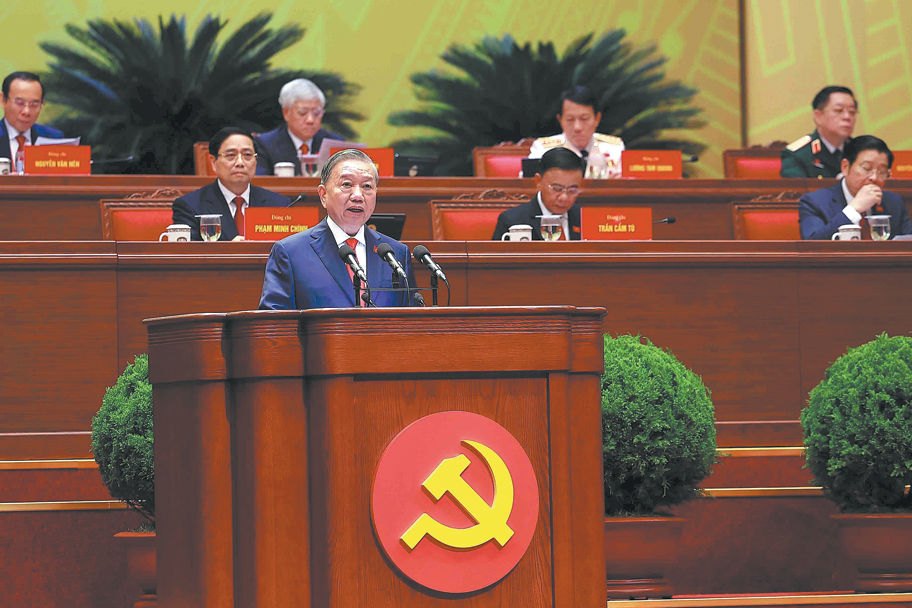Experts call for strengthened sea monitoring


China will need to strengthen monitoring of the ocean if Japan continues with its plan to dump wastewater with nuclear contamination into the Pacific Ocean despite widespread concerns and opposition at home and abroad, experts said.
Zhao Chengkun, executive deputy director of the expert committee of the China Nuclear Energy Association, said that at the moment, it is difficult to predict exactly how much impact Japan's plan to release contaminated wastewater from the wrecked Fukushima nuclear plant will bring to fisheries or the entire marine ecology, given the lack of full access to wastewater-related data.
But from the point of view of self-protection, China will need to strengthen monitoring of the seas to obtain sufficient data for authorities to assess the situation, Zhao said.
Japan announced last week its plan to discharge over 30 years more than 1 million metric tons of contaminated water into the sea, after being treated.
The radioactive water has built up since an earthquake and tsunami in 2011 knocked out the cooling systems to three nuclear reactors of the Fukushima plant, causing them to melt down. The plant operator used the water to cool down the reactor cores and later stored the wastewater in tanks.
Fierce controversy
Although Japan's government said it will apply a filtration technology known as the Advanced Liquid Processing System to ensure the contaminated wastewater meets international safety standards, the plan has still stirred fierce controversy, with many fearing that the radioactive elements released into water will damage the environment.
China's Ministry of Ecology and Environment said on Sunday that China, as Japan's neighbor and a regional stakeholder, is gravely concerned about the decision, which the Japanese government made unilaterally despite questions from its own people and the international community.
The ministry said that Japan should conduct further studies on various means of disposal of the contaminated wastewater, disclose information in a timely and comprehensive way and reach a prudent decision after full consultation with stakeholders.
China at the same time will carefully assess the possible impact on the marine environment and closely monitor the ocean to safeguard China's marine safety, it added.
Liu Xinhua, a researcher at the Nuclear and Radiation Safety Center of the Ministry of Ecology and Environment, said the contaminated Fukushima wastewater is fundamentally different from regular wastewater from the normal operation of nuclear power plants.
The contaminated Fukushima wastewater was used to cool down the molten core, which released a large amount of radioactive materials in a wide variety of types, including extremely toxic elements, whereas regular effluents from nuclear plants rarely come into contact with the fuel core and thus contain almost none of those toxic elements, he said.
Regular nuclear power plants strictly comply with international standards and use the best available technology to treat effluents, but the ALPS technology still needs to be tested, he added.
Zhao said the heart of the question is whether the treatment of the contaminated water can strictly meet the standards. The impact of the discharges is closely related to the concentration, type and the number of radioactive elements released. Therefore, Japan needs to be transparent and open its data first in order for the international community to make objective scientific assessments.
According to the Japanese government, the ALPS technology is able to remove most of the radioactive isotopes except for tritium, which is considered relatively harmless. However, whether the result will meet the standards is still questionable, Zhao said.
In February 2020, Japan's ALPS Subcommittee, which is responsible for studying the treatment, released a report showing that as of Dec 31,2019, 73 percent of the contaminated wastewater treated by ALPS exceeded Japan's discharge standards.
In addition, data released by Tokyo Electric Power Co, the plant's operator, have indicated that the activity and concentration of some radioactive isotopes in filtered wastewater, such as iodine-129, still exceeded the limits.
Zhao said public records have also shown that TEPCO has a history of concealing and falsifying information in matters of nuclear operational safety.
"We have every reason to question whether the treated water will actually meet the standards," he said, adding that "disposal is a must, but the Japanese government must be transparent and allow assessment and review from international experts".
Japan initially proposed five options to dispose of the contaminated water, including burying it underground or evaporating it.
Although the Japanese government claimed that discharging it into the Pacific Ocean is the "best solution", Liu Senlin, a researcher from the China Institute of Atomic Energy, said that option is only the cheapest and the one most favorable for Japan itself.
Alternatives like underground burial or injection deep into the Earth allow the water to be treated only on Japan's land, leaving no impact on other countries, but they are expensive. The vapor-release proposal would generate solid waste, which would require further treatment, also entailing higher economic costs, he said.
That makes the ocean discharge option the least costly and most favorable to Japan's self-interest, he said, adding that it is highly irresponsible for Japan to unilaterally make such a decision and transfer the responsibility that could have been borne by itself to all humanity.
Liu Senlin said, "Japan should take more prudent measures and choose the optimal disposal method in a responsible manner, with the participation and supervision of stakeholders."






























